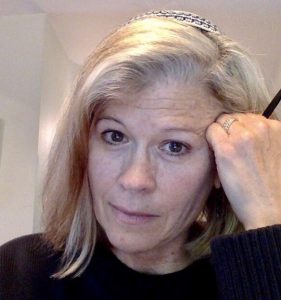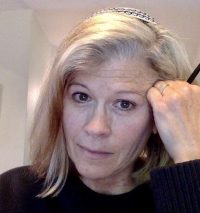The Emerging Jewish Community: A Riotous Forest of Life
This week’s post is by Rabbi Ariel Stone, Rabbi of independent Congregation Shir Tikvah of Portland Oregon and the convener of Portland Interfaith Clergy Resistance.
The first word that caught my eye in Jewish Megatrends: Charting the Course of the American Jewish Future
That work led to TischPDX. This project invites all who participate in it – Advisory Board, funders, and those who interact with the TischPDX cohort in its events and programs – to welcome new thinking about what it looks like to be Jewish, as demonstrated by the cohort. We deliberately do not follow the practice of inviting promising young (or not so young) Jews to join a leadership seminar run by current Jewish organizational leaders. Instead, we reach out to these Jews where they are, supporting them in what they are already exploring and doing in Jewish learning, organizing, and acting. It looks rather different, and it is the Jewish future.
I attended the 1987 Summit Rally for Soviet Jewry in Washington DC that Rabbi Sid describes in his essay and I too remember that day as an inspiring expression of what Jewish community can look like. It does still look like that, only today, far more discomfiting – those masses today are denouncing the Occupation. Israel is in my experience the single greatest taboo in Jewish establishment organizing. TischPDX creates a safe space for makhloket l’shem shamayim (controversies for the sake of heaven) for all those who learned the lesson of Jewish ethics and seek to apply it to the world they live in. TischPDX cohort members learn that this wisdom comes from Bava Batra 62: kashot atzm’kha tekhilah, fix up your own back yard before you go correcting others. TischPDX does not try to control or directly influence the Israel politics of its cohort members.
Rabbi Sid wrote: “Despite avoiding any formal affiliation with Jewish institutions…[they] identify with the Jewish historical narrative and ethical legacy.” We have found that despite their alienation, social activists organize out of their sense that this is holy Jewish work (they would not call it holy, but I do), and they welcome Torah study with a shy curiosity that quickly becomes enthusiasm. TischPDX opens its arms wide enough for these “covenantal” Jews. Any Jew who wants to join us can come, open a humash and ask any question at all about the weekly Torah portion. We have found that they are delighted with the access, both to the Torah and to an old-school, queerly traditional Rabbi who is respectful of them, and doesn’t try to change their thinking.
I remember a Hasidic parable in which the rebbe sees a Jew smoking on the corner, on Shabbat. Surely, he must be ill, or forgot what day it is? No, the smoker reassures him. What a people! The rebbe exclaims, they may sin, but they won’t lie about it!
That rebbe knew that drawing Jewish lines to rule Jews in or out based on visible levels of identification is a doomed and divisive practice. Better to quote the teaching that just as each verse of Torah has seventy meanings, so also the Jewish people, each one of us represented by a letter of Torah, is capable of seventy faces. The line changes daily, and we should learn from it. Rabbi Akiba’s “this too is Torah and I need to learn it” applies in some pretty strange places, or it does not apply at all.
As Schwarz puts it, “Rabbis must move from talk/control mode to listen/empower mode.” And not only rabbis. Funders who rule out programs where there might be a guest from Breaking the Silence must also learn that gifting the resources must not imply control. Learning this Torah requires humility on the part of those of us who might be taken for its gatekeepers; we won’t like some of the newest revelations that open before us. Yes, we need to learn to “hear the voice of G*d in languages and cultures that are not ours,” even though they are Jewish and we want to insist that they are ours to control.
The “four propositions” that Schwarz puts forth in his essay are core to the ethos of TischPDX: chochma, musar, kehilla and kedusha. We see that “truth sprouts from the earth” and we seek those sturdy sprouts which are already blossoming. This is not the establishment’s ordered garden but a riotous forest of life. We cannot control what will come forth next; we can only recognize the ground we prepared and nurture it by offering the wisdom and guidance of Torah. Our cohort represents those alienated Jews who nevertheless welcome Jewish wisdom that they can respect, when it is offered to them with respect. That means facing the more challenging Jewish teachings and texts, not patronizingly watering down the offensiveness.
I met one of our current cohort at a downtown protest; we were standing between the protestors and the riot
police, determined to assert bodily that even unruly young people protesting injustice in the street deserve respect. All of our current cohort are reacting to the dysfunction and danger of our society. They teach us the urgency of the hour in which we live. In these straits, they know they need the support of meaningful community for the Jewish rituals and Jewish meaning they seek. One thing is still true: Jews do Judaism in community. When they gather for TischPDX sessions they are strengthened by the community that we are creating with them, one that celebrates ethical action to protest injustice, and to build justice. They show up to each other’s events in support; they become each other’s friends.
TischPDX succeeds not by “capturing the next generation of American Jews”, but by giving them the keys: the meaningful Jewish learning and community that supports and nurtures the creative Jewish expression upon which they are, already, embarked. We care for this garden in hope.
__________
Rabbi Ariel Stone has guided Jewish communities from Ukraine to Oregon in creating innovative visions of the Jewish future grounded in Torah study. She is the rabbi of independent Congregation Shir Tikvah of Portland Oregon and the convener of Portland Interfaith Clergy Resistance.


